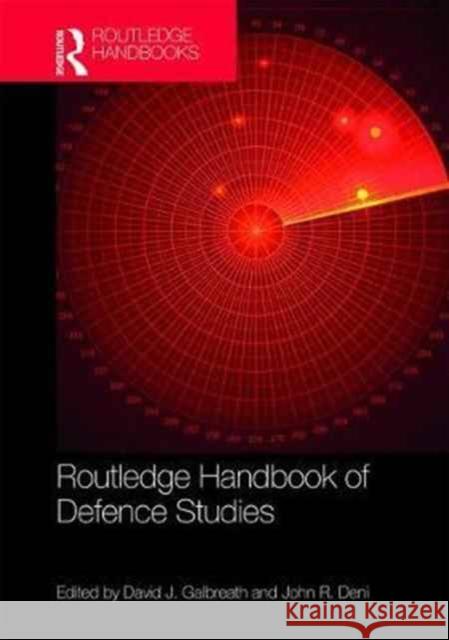Routledge Handbook of Defence Studies » książka
Routledge Handbook of Defence Studies
ISBN-13: 9781138122505 / Angielski / Twarda / 2018 / 412 str.
Routledge Handbook of Defence Studies
ISBN-13: 9781138122505 / Angielski / Twarda / 2018 / 412 str.
(netto: 1142,80 VAT: 5%)
Najniższa cena z 30 dni: 1108,22
ok. 22 dni roboczych.
Darmowa dostawa!
The Routledge Handbook on Defence Studies provides a comprehensive guide to the key debates around defence studies in the 21st century. Defence studies is a multi-disciplinary study of how agents, predominantly states, prepare for and go to war. Where security studies has been broadened and stretched to cover at times the near totality of international and domestic affairs and war studies has come to mean more than just operations and tactics but also experiences and outcomes, defence studies remains a coherent area of study primarily aimed at how defence policy changes over time and in relation to stimulating factors such as changes in power, strategy and technology. This handbook offers a complete landscape of this area of study and contributes to a review of defence studies in terms of policy, security and war but also looks forward to new challenges to existing conceptions of defence and how this is changing as states and their militaries also change. The ability to review the field while also looking forward to further research is an important element of a sustainable text on defence studies. In as much as the collection is able to highlight the main themes of defence studies, it also offers an in-depth look into how defence issues can be examined and compared in a contemporary setting.
The volume is divided into four thematic sections following an introduction by the editors. In the first section, the chapters look at 'identifying defence studies'. The chapters look at defence in three ways: narrowly as policy, applied as war, and broadly in terms of security. It also looks at the latest methods for researching defence studies in a changing empirical environment. The second section looks at 'defence practice'. These chapters look at the hallmarks of defence studies, including chapters on planning, budgets, and logistics. The third section examines 'operations and tactics'. In this section, the contributors look at the applied elements of defence policy with a focus on different types of warfare, such as land and cyber. Finally, the volume looks at 'contemporary defence issues'. This section pays attention to the challenges to 'doing defence' such as public opinion, defence culture and defence assistance. This handbook will be of great interest to students of defence studies, strategic studies, war studies, security studies and IR.











